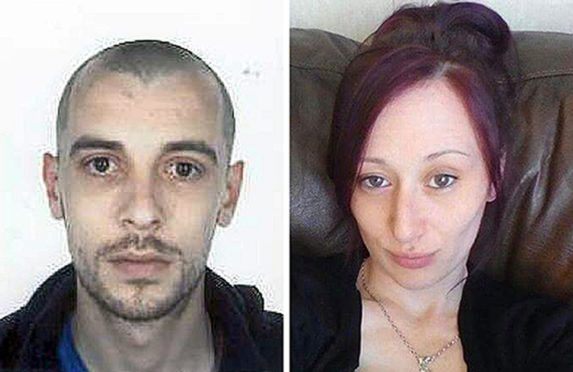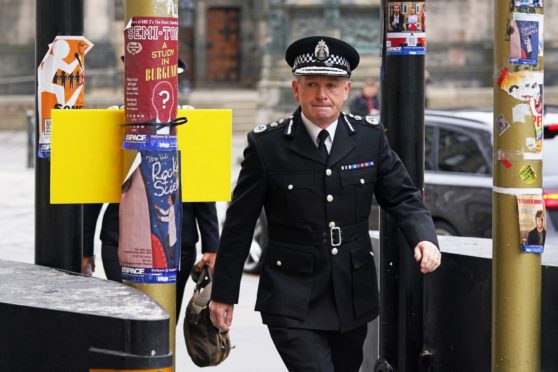Police Scotland have admitted their failings “materially contributed” to the death of a young mother who lay undiscovered in a crashed car with her partner for three days after the incident was reported to police.
The force on Tuesday pleaded guilty to health and safety failings, following the deaths of John Yuill, 28, and Lamara Bell, 25, who died after their car crashed off the M9 near Stirling in July 2015.
Despite a call being made to police, it took them three days to respond.
When officers finally arrived at the scene, Mr Yuill was found to be dead and Ms Bell died four days later in hospital.
The couple had been holidaying in Perthshire and had been the subject of a nationwide appeal since last being seen on the south shore of Loch Earn.
A report in 2015 found the police control room that took the call which could have saved the 25-year-old’s life had “insufficient staff”.
After the initial contact was not logged properly, Ms Bell and her partner lay in their car for three days before a second passer-by alerted authorities, who finally attended.
Her Majesty’s Inspectorate of Constabulary Scotland (HMICS) was asked to review call centre handling in the wake of the tragedy coming to light.
The report had 30 recommendations for improvement.
The most damning verdict rules: “There were insufficient staff available in Bilston Glen when work transferred from Stirling and Glenrothes in early 2015, resulting in low levels of performance.”
Bilston Glen outside of Edinburgh was the control room that took both calls regarding the crash.
Police Scotland admit failure at High Court
At the High Court in Edinburgh on Tuesday, the office of the Chief Constable of Police Scotland admitted that it failed to ensure that people including Mr Yuill and Ms Bell were not exposed to risks to their health and safety by failing to provide an “adequate and reliable call-handling system” between April 1, 2013 and March 1, 2016.
It also failed to ensure the system was “not vulnerable to unacceptable risks arising from human error” and to ensure that all relevant information reported by members of the public was recorded on a Police Scotland IT system so that it could be considered and a police response provided where appropriate.
The force admitted that as a result, members of the public were exposed to risks to their health and safety and, in particular on July 5, 2015, a police officer at the force call-handling centre at Bilston Glen Service Centre failed to record a phone call from a member of the public reporting a vehicle was at the bottom of an embankment at the side of the eastbound junction nine slip road from the M80 on to the M9.
The indictment says the phone call was not recorded on any Police Scotland IT system and the failure went unnoticed with “no proper consideration of the report and no opportunity for an appropriate response from Police Scotland”.
The force admitted Ms Bell and Mr Yuill remained “unaided and exposed to the elements” in the car between July 5 and 8, 2015 and that the failings “materially contributed” to her death on July 12 that year at the Queen Elizabeth University Hospital in Glasgow.
The force pleaded guilty to breaching the Health and Safety at Work Act 1974.
Sir Stephen House, who was chief constable at the time of the incident, stepped down from the role at the end of 2015 following controversy over the deaths.
“Lamara has justice”
Diane Bell, mother of Lamara, welcomed the conviction of Police Scotland at the High Court in Edinburgh.
In an emotional statement released through Digby Brown Solicitors, she said: “The absence of answers and recognition has been the biggest strain because it is the not knowing that makes everything worse.
“It has taken a long time for this conviction to be secured but it is a huge relief that Police Scotland has finally admitted being at fault for Lamara’s death.
“I’d like to thank everyone who has supported us since 2015.
“Our family and friends… the local community… our legal team… and also the media whose spotlight helped make sure the failures that led to Lamara’s death could not be swept under the rug.
“That being said, we are a private family and now have a lot to consider and come to terms with – and as such, to assist with our healing process, we require time and space so we now respectfully request that our privacy is respected.
“But the important thing now that today we have the conviction.
“Finally, we can say – Lamara has justice.”


